Women-Led Change: Community Engagement and Rural Development in Uganda
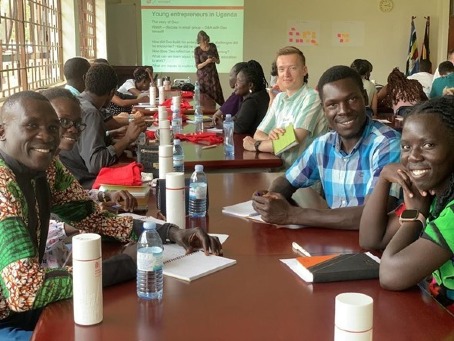
While Uganda is in need of motivated people to contribute to its development, it struggles to provide relevant quality education and decent work to the youth. More and more young people graduate from Higher Education, but opportunities on the labour market are scarce. Many refer to entrepreneurship for which they have to learn new skills.
African Rural University (ARU), a women only university, combines theoretical learning and innovative instruction with field practice for its graduates to work with rural people improving their lives, transforming their communities, and increasing their capacity for self- generating and sustainable change. Working on sustainable change implies taking into account climate change in rural development mitigating it through appropriate technologies.
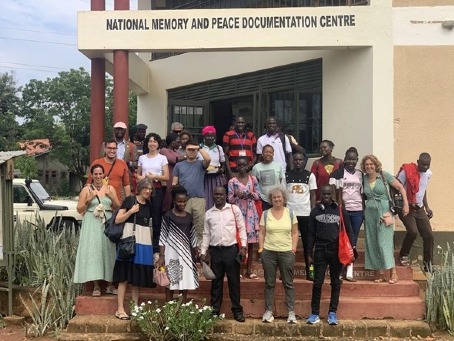
In line with the tradition of the summer schools of the UNESCO chair on ‘Lifelong learning, youth and work’, the participants of the summer school are invited to engage in community action research on the spot. They will get to know the surrounding community and the way of working of the university and its graduates in theory and practice through workshops, visits, interviews and discussions in and around the university. They will meet lecturers, speak with students, sit together with families and observe rural communities. They will be challenged to develop ideas on themes such as community engagement, rural entrepreneurship, climate change, student well being, women as change agents, and action research. These ideas will be turned into workshops with participation of community members on the last day of the summer school.
Practical information
|
Dates & location
|
26 – 31 May 2025, African Rural University (ARU), Kagadi, Uganda
Please be aware that you will need to account for extra traveling time of 1/2 days ahead and 1/2 days after the summer school. |
|
Level
|
Minimum 3rd year Bachelor |
|
Fee
includes lunch, coffee, tea, local transportation |
€ 445 for international participants
€ 50 for Ugandan participants The fee includes meals during summer school programme, coffee, tea, local transportation NB Please see the "Accommodation" section below for information regarding the location of the summer school and the accommodation.
|
|
Academic coordinator
|
Josje van der Linden, UNESCO Chair holder Lifelong Learning, Youth and Work, Gulu University, Uganda, University of Groningen, the Netherlands |
|
Contact
|
Yewsummerschool@rug.nl |
NB Participants need to arrange their own accommodation. For a list of affordable possibilities, kindly contact the organizers.
Please be aware that you will need to account for extra traveling time of 2 days ahead and 2 days after the summer school
Requirements
The summer school is designed for students, lecturers, researchers, practitioners of any gender.
It is expected that the participants have a sufficient command of the English language to actively participate in the discussions and to present their own work in English.
Learning outcomes
At the end of the summer school participants will be able to:
- Conduct community engaged research;
- Formulate the role of women as change agents in a developing context;
- Explain the challenges and perspectives of community oriented higher education;
- Share insights on the Ugandan context regarding relevant quality education and decent work;
- Collectively create knowledge on ‘women-led change, community engagement and rural development’;
- Communicate and collaborate across cultures.
Workload
Upon successful completion of the programme, the Summer School offers a Certificate of Attendance that mentions the workload of 40 hours (28 hours corresponds to 1 ECTS) including preparatory work and report writing. Students can apply for recognition of these credits to the relevant authorities in their home institutions, therefore the final decision on awarding credits is at the discretion of their home institutions. We will be happy to provide any necessary information that might be requested in addition to the certificate of attendance.
Course schedule
General research question for the summer school: How can community engaged education contribute to rural development and social change with women in the lead?
Provisional programme:
-
Day 1 Getting to know each other, the university, its approach, its nearby surroundings
-
Day 2 Orientation on Participatory Action Research and the fieldwork to be done
-
Day 3 and 4 Fieldwork in and around Kagadi in thematic groups
-
Day 5 Processing fieldwork, reflection on the role of women, entrepreneurship, mental health and wellbeing and action research, preparing final workshops
-
Day 6 Workshops led by participants, evaluation, certificates
Please be aware that African Rural University will send a bus to collect you from either Entebbe (where the airport is) or Kampala (capital) early morning on the day before the summer school starts and that same bus will bring you back on the day after the programme has finished.
Accommodation
Please see the document below for information regarding the location of the summer school and the accommodation.
Please keep in mind that, once you have been selected to participate in the summer school and have paid your participation fee, you will be asked to indicate what kind of accommodation you prefer to have during the summer school.
Speakers

Josje van der Linden
Josje van der Linden is lecturer and researcher at the University of Groningen. Her research interests encompass the area of lifelong learning, vocational education and workplace learning for adults and youth in the Netherlands and in Africa with special attention to youth, education and work in (post-)conflict areas. Dr. van der Linden is appointed as UNESCO chair holder on Lifelong learning, youth and work at Gulu university in Gulu, Uganda.
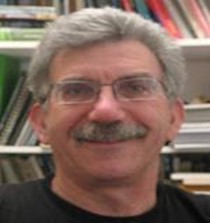
Victor J. Friedman, Ed.D., Harvard University, is an action researcher working in the fields of organizational learning, social inclusion, social entrepreneurship, and conflict engagement. Prior to retirement, he was Associate Professor of Organizational Development and Consulting at the Max Stern Yezreel Valley College in Israel, where he founded and directed the Action Research Center for Social Justice. He has been an active participant in the Youth Education and Work Network for over ten years. He has numerous publications and serves as an Associate Editor at the Action Research Journal. Victor lives with his wife in Zichron Yaakov, Israel, and they have four children and 7 grandchildren.

Namubiru Zula is a Lecturer at the Makerere University Department of Adult and community Education, Council Member African Rural University Kagadi on Appointment’s and Promotions Board; an all-woman university using women as agents of change. Chair Board Paradigm for Social Justice and Development a Women’s Organization providing Peace Building, Legal Services, Income Generation and Sexual and Reproductive Health Rights. Committee Member for Uganda under FEMNET on Inclusive Education/Vocational Education for Girls and Young Women. FEMNET a Women’s Communication Network in Africa.
Coordinator for Makerere University on UNESCO Chair Lifelong Learning, Youth and Work housed at Gulu University and University of Groningen Netherlands. Works with World Health Organization Uganda, UNFPA and Ministry of Health on sexual and reproductive health policies and strategies for Uganda. PhD student in the School of Distance and Lifelong learning at Makerere University; conducting research with fishers and female fish smokers. A participatory Action Researcher specializing in women’s issues and fishers. Member British Institute of Eastern Africa, member Association of Professional Adult Educators in Uganda, Member Academy of Science New York, Member AFRIHEALTH OPTONET association, Member Women Major Group a global network for advancement of women affairs in policy advocacy and Sustainable Development goals at UN Summit and Regional forums. Visiting Research fellow at University of Groningen Netherlands and Adult Education Academy at Wurzburg University Germany.
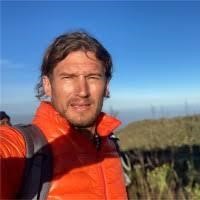
David Monk is a Lecturer in the Faculty of Education and Humanities at Gulu University (Uganda), and honorary Associate Professor in the school of Education at the University of Nottingham (UK). His PhD is from the University of Victoria (Canada), and related to
informal learning in grassroots activism for social and environmental justice. David is a special advisor to the UNESCO Chair in Lifelong Learning Youth and Work and coordinator of the UNESCO Knowledge for Change (K4C) African Centre for Training in community based participatory (action) research. He also sits on the board of several NGOs based in
Gulu which are oriented in social impact and empowerment in Northern Uganda. David’s research and community work revolve around inclusive lifelong learning, developing healthy community university relationships, environmental sustainability, and innovation, participatory community economics and social entrepreneurship, and understanding the vibrant social learning ecosystem in northern Uganda. Informality, gender, peace, and epistemic justice are cross cutting. Recent publications can be found here.
d.monk@gu.ac.ug, @dfmonk
https://orcid.org/0000-0002-9178-6576, https://www.researchgate.net/profile/David_Monk9

Prof Kennedy Amone-P’Olak obtained a bachelor and master’s degree from Makerere University, Kampala, Uganda and later pursued another master's degree in Health and Behavioural Sciences from Leiden University, The Netherlands in 2004. He completed his PhD from Groningen University, also in the Netherlands and pursued a postdoctoral fellowship from the University of Cambridge in UK. He has been at the University of Botswana, University of the Witwatersrand, and now a professor at Kyambogo University, Kampala, Uganda. His main research interests include psycho-traumatology, childhood adversity and early adult health outcomes, drug and substance abuse and mental health literacy. Prof Kennedy Amone-P’Olak has been a visiting scholar at the University of Southern Denmark in Denmark, University of Bergen in Norway, and Uppsala University in Sweden. Prof Amone-P’Olak is the PI of the WAYS study, a longitudinal that aims to chart the development of mental health problems in formerly abducted youth in northern Uganda and has published extensively in the field psychological trauma. Currently, Prof Amone-P’Olak is developing an application for a UNESCO Chair to be hosted at Gulu University.

Michal Razer, Prof. is the Dean of Education Faculty In Oranim Academic College of Education, where she founded the M.Ed. program in Inclusive Education and Youth at Risk as well as the Shaveh Center for Equity and Social Inclusion. She was the co-founder and director of Metarim, a center for training educational and welfare professionals in inclusive practice, at the Oranim Academic College of Education .Razer has over thirty five years of experience in educational therapeutic interventions in educational systems and in developing intervention programs for generating social inclusion in education. She has published extensively on inclusive education and in-service training in inclusion.
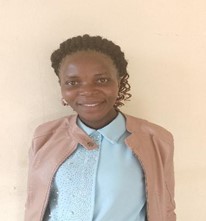
Muhindo Milly Dezire is a passionate social worker and rural development advocate from Kyaterekera Village, Kagadi District, Uganda. She earned her Bachelor of Rural Development from African Rural University (ARU) in 2015 and is currently pursuing a Master’s degree in Public Health at Uganda Christian University.
Her career began with Community-Based Participatory Action Research (CBPAR) during her ARU practicum in 2011. Working in Bukungwe B Village, she collaborated with the community to identify clean and safe water as a priority, leading to the development and implementation of a comprehensive action plan. This effort empowered the community, resulting in cleaner water sources and sustainable initiatives.
Milly later served as an Epicenter Manager for Kagadi Sub-County Local Government, focusing on community mobilization, capacity building, mindset transformation, and project implementation. She currently works as the Administrator in the Dean’s Office and a Teaching Assistant at ARU, where she continues to contribute to rural development through education and mentorship. Milly has participated in three summer schools and continues to empower rural communities through innovative, participatory approaches.
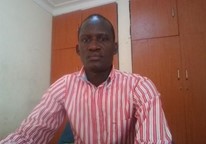
Oluba Denis Delaco,The Planning and Resource Mobilization Officer at African Rural University (ARU) I am an experienced project management professional with over 10 years of expertise in community development, research management, resource mobilization, Project implementation and management. I hold a Bachelor’s degree in Public Administration from Gulu University, post graduate Diploma in Project Planning and management, Certificate in Administrative Law and I’m currently pursuing a Master of Arts in Public Administration. I have a strong background in project management and managing both qualitative and quantitative data collection, field research, and coordinating multi-stakeholder initiatives, particularly in Uganda. My work focuses mainly on sustainable development, education, and stakeholder engagement, with a passion for creating economic opportunities and improving livelihoods. I’m keen on applying my project management skills to high-impact initiatives, particularly in behavioral science, to drive real-world solutions.
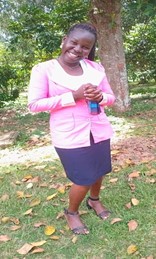
Acio Beatrice is a fourth-year student at African Rural University (ARU), pursuing a Bachelor of Science in Sustainable Agriculture. In 2024, she participated in the 6th UNESCO Summer and Winter School in Gulu University in Gulu City, where she deepened her knowledge of sustainable development and agriculture. Beatrice is preparing to volunteer at the 7th Summer School in 2025, furthering her commitment to sustainability and community-driven agricultural solutions.
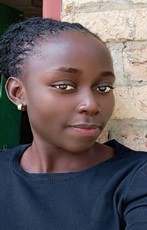
Acirocan Patricia is a third-year student at African Rural University (ARU), currently pursuing a Bachelor’s degree in Rural Development. In 2024, she participated in the 6th UNESCO Summer and Winter School held in Gulu, where she gained valuable insights into global development challenges. Acirocan is set to volunteer at the 7th Summer School in 2025, furthering her commitment to community development and her academic growth in rural development studies.
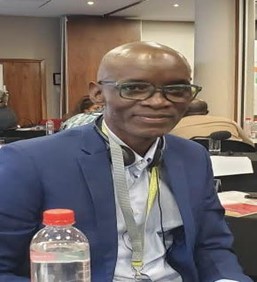
Robert Jjuuko, PhD
Dr Robert Jjuuko is a Ugandan development consultant, educationist and researcher on youth education-work transition, adult education policy & financing, and vocational education & training. Robert has more than 17 years of experience of theory and practice with a good contextual understanding of issues and trends in the field of education and development in sub-Saharan Africa. He is a passionate scholar of agency in the context of youth transition, transformative education and social change. During the previous summer episodes, Robert is always excited to facilitate learning and reflections on (social) capitals and their influence on the education-work transition of individuals.
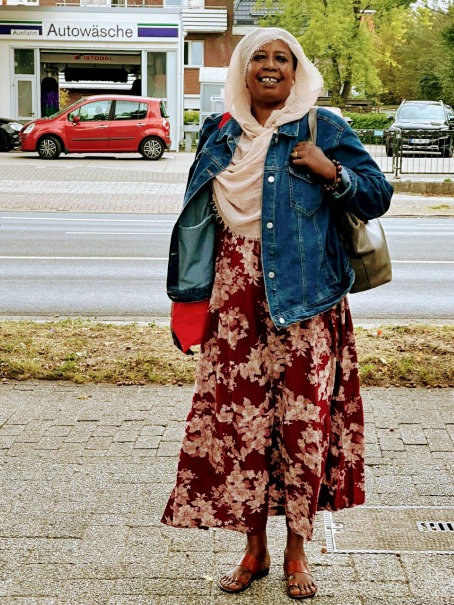
Dr. Alawia Ibrahim Farag Elbla is an associate professor of education, the Director of Students’ Affairs, and a former dean of the School of Psychology and Pre-School Education at Ahfad University for Women (AUW) in Sudan. She teaches several master-level courses, including Perspectives on International and Multicultural Education, Human Rights and Peace Education, and Education in Emergencies.
Dr. Farag played a key role in establishing a master's program in International and Multicultural Education and Development, adapted from the NOMA joint master's program. This program was introduced at the School of Psychology and Pre-School Education at AUW 12 years ago. In July 2018, she participated as a lecturer and researcher in the Summer School held at Gulu University in Uganda, organized by the University of Groningen, Netherlands.
Her recent publications include:
● Brown, F. L., Farag, A. I., Abd Alla, F. H., et al. (2020). Can’t Wait to Learn: A quasi-experimental mixed-methods evaluation of a digital game-based learning program for out-of-school children in Sudan. Journal of Development Effectiveness, Routledge, Taylor & Francis Group.
● Farag, A. (2020). Reflections on challenges related to youth, education, and work in Sudan. In J. van der Linden, A. Rodrigues-Vasse, M. Kopp, B. Abraham, & F. Dier (Eds.), Youth, Education, and Work in (Post-) Conflict Areas (pp. 155–170). Globalisation Studies Groningen, University of Groningen.
● Badri, B., Farag, A., Izzeldin, M., & Awad, A. (2019). State of Marriage in the Arab World. Doha International Family Institute Publications, Qatar.
Alawia Ibrahim Farag Elbla
Students’ Affairs Office Director,
Ahfad University for Women, Khartoum, Sudan
alawiaibrahim@gmail.com
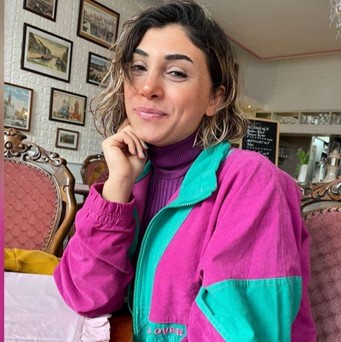
Afra Isik will participate in the summer school as an intern and co-presenter. After graduating in 2016 from Uludağ University’s Guidance and Psychological Counseling Department, she worked as a psychological counselor in various institutions, including the Turkish Ministry of National Education and the Ministry of Family and Social Policies.
Currently, she is pursuing two master’s degrees: Youth 0-21 Society and Policy at the University of Groningen and Women’s Studies at Kocaeli University. In her free time, she enjoys spending time with her friends and family and loves cooking.
LinkedIn: Afra Işık
Email: a.isik student.rug.nl
Application procedure
To apply, kindly fill out the online application form. Please include the following documents with your application:
- CV (max 2 pages)
- Letter of motivation, explaining what you hope to learn during the summer school and why this will be important for your academic ambitions (max 1 page)
The deadline for applying is 1 April 2025. Selection will take place on a rolling-basis.
For some more information on the programme, visit the summer school's social media!
Instagram: @summerschooluganda
Facebook page: Summer School 'Youth, education and work in post-conflict areas.
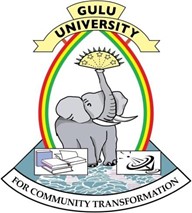
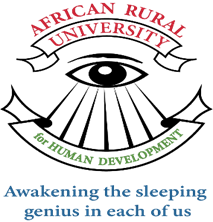

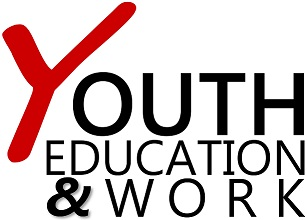
| Last modified: | 07 April 2025 10.23 a.m. |
